I’m thrilled to share this article written by my friend, fellow author, and book editor, Belinda Pollard (@Belinda_Pollard). Enjoy!
 The right feedback at the right time is the secret weapon of every successful author.
The right feedback at the right time is the secret weapon of every successful author.
Of course, an editor would say that. But I’m also a writer, and I love good feedback on my own work.
I’m calling it feedback, not just “editing.” It would be wonderful if every author hired great editors, but I’d never urge anyone to risk their family’s food and shelter for it!
Whether you hire an editor or recruit volunteer beta readers to critique your manuscript, you need to know what to ask for at different phases of the process.
Read this paragraph, it’s important!
I’m always hearing about writers who expected one type of feedback, and got something completely different.
The names for different phases of editing vary from country to country, publisher to publisher, and even editor to editor. The best solution is not to rely on the label.
Ask lots of questions of a professional editor. Be certain you understand exactly what they are offering to do for you, no matter what they call it.
With a beta reader, taking time to chat can help ensure that you get what you need, and no one’s time is wasted.
What to look for in an editor or beta reader
Over the years, I’ve noticed characteristics of people who excel at different types of feedback. If you don’t know your editor/beta reader personally, their blog, social media interactions or published writing can help you get a feel for their personality.
Or if all else fails, Just Ask. 😉 A professional editor should know which phase they are best at. An experienced beta reader probably knows, too.
Phase 1: Development
Developmental feedback is for the early stages of a book. Perhaps you have a few chapters and an outline, or a first full draft. You need someone to value the strengths, identify the weaknesses, and develop a vision for the latent possibilities.
A “developer” doesn’t correct typos and grammar. There’s no point – it’s too early. Good developmental editors and beta readers tend to be:
- widely-read, certainly in the genre in which you are writing, but hopefully other genres too. They ideally read literary works, trashy fiction, classics and modern books, memoir, biography, non-fiction. They draw unlikely inspiration from all those different genres to help make your book come alive.
- They are lateral thinkers and problem solvers. In fact, they’ll often come up with solutions that are a little, well, weird. But we’re aiming for the kind of weird where you say: “Wow, I’d never have thought of that, but it’s brilliant.” Not the kind where you think: “Oh dear, is she off her meds again??” 😉 (If their blog posts are so “out there” you can’t figure them out, it may be a sign you won’t get value from their comments on your manuscript either.)
- They are “big picture” people, more interested in reshaping the forest than worrying about the individual trees. They might even write scurrilous blog posts about why grammar doesn’t matter. (Yes, I confess. Developmental editing is one of my own favorites.)
Phase 2: Redevelopment
Your book is finished, or you think it is, but you’re not sure if it’s working. You have a full first self-edited draft, or you may be up to Draft 2 or 3.
- Someone with an eye for redevelopment can help you see how to reorganize the content you have, to make it work harder and smarter. They look at the overall structure (which is why I call them “structural editors”).
- Expect that you will do a lot of rewriting after “redevelopment”, and therefore there’s not much point asking them to correct typos. You’ll be creating a lot more typos before you’re finished! (Don’t worry, we all do that.)
- “Redevelopers” often have similar characteristics to the “developers” listed above, and the tasks can overlap too. What you end up with will differ because your book is more advanced.
Phase 3: Consolidation
Your book is now up to its final draft. It may have had multiple beta readers/editors in the earlier phases. Now you need someone to go through your book line by line, read every letter of every word, correct typos and grammar, make spelling and punctuation consistent, and “massage” the expression where it needs a little help.
I usually call this one “copy editing”, but you’ll find widely varying definitions of that term! So let’s just call it a “consolidator” for now. 😉
- A consolidator has a more detailed eye. Their own writing has very few typos (everyone has SOME). They have a sense of precision, are well-educated in English, and possibly even know what a gerund is and why it matters. 😉
- If you use a beta reader for this phase, ensure they work in a way that allows you to see the changes they’ve made (eg, using Track Changes in Word). Take care not to let them drown out your writing “voice” with excessive correctness – you can always reject a change.
Phase 4: The final polish
Every publishing pro I know calls this phase “proofreading,” so let’s just call it that. 😉 Be aware that it’s not the same as any phase of editing.
All editing or beta reading is complete, you have made the final corrections to your final draft, and your book has been formatted for either print or ebook. Proofreading happens immediately before publishing.
- A proofreader has a very detailed eye. They read every letter of every word, every punctuation mark, every page number. They are looking at the fleas on the squirrels on the trees in that forest!
- They are looking purely for errors and omissions, not making value judgements about what might work better.
- The best proofreaders I have ever worked with have been pedants. I want them to say I should have used “whom,” even though 9 times out of 10 I’ll ignore it (because it doesn’t suit the conversational style of the book, not because they are technically wrong).
 Belinda Pollard is the owner of Small Blue Dog Publishing in Brisbane, Australia. A former journalist, she has been a specialist book editor for 19 years, and a publishing consultant for 12. She is the published author of biblical meditations and a Varuna Fellowship winner for fiction, but eats too many chips and cannot get her dog to walk calmly on a leash. She works with (and loves) both traditional and indie publishers.
Belinda Pollard is the owner of Small Blue Dog Publishing in Brisbane, Australia. A former journalist, she has been a specialist book editor for 19 years, and a publishing consultant for 12. She is the published author of biblical meditations and a Varuna Fellowship winner for fiction, but eats too many chips and cannot get her dog to walk calmly on a leash. She works with (and loves) both traditional and indie publishers.
Note from Molly: Check out my novels on Amazon, join my Reader’s Club for freebies and book news, and follow me on Twitter. This original content is copyright protected. Thank you so much. Mwah!


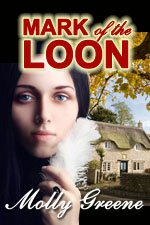
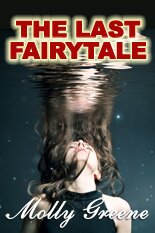
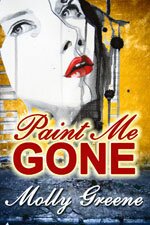
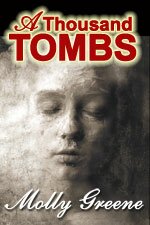
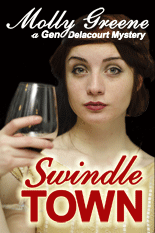
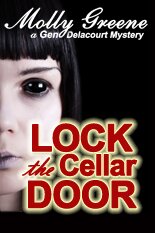
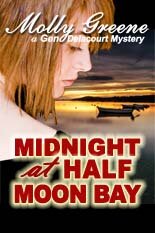
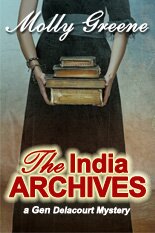

Comments are closed.